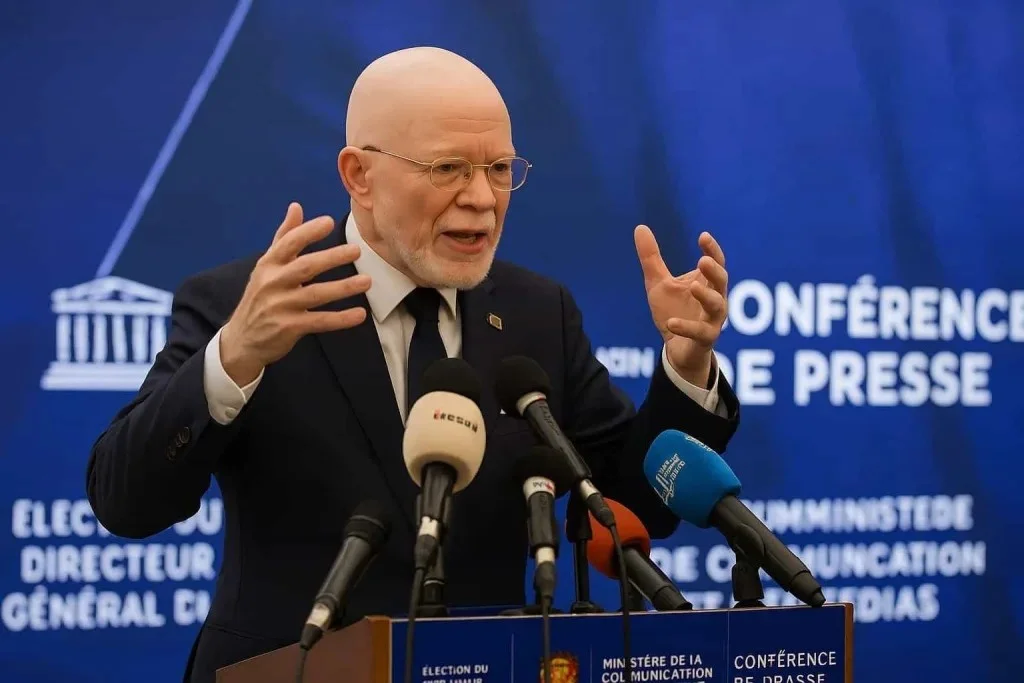UNESCO’s executive board opened voting on Monday to choose its next director-general, with Khaled el-Enany from Egypt and Firmin Matoko from the Republic of Congo emerging as the final contenders. The election takes place during a severe funding and credibility crisis following the withdrawal of the United States, which once provided a large share of the agency’s budget.
A Leadership Contest at a Critical Moment
The new head of UNESCO will take charge at a turbulent time. The U.S. exit created deep financial gaps and exposed internal divisions within the organization. Whoever wins must restore trust, improve efficiency, and strengthen global cooperation across education, science, and culture.
Khaled el-Enany: Heritage Expert and Arab Candidate
Egypt’s Khaled el-Enany, an archaeologist and former minister of tourism and antiquities, hopes to become the first Arab leader of UNESCO. Supported by both the Arab League and African Union, he promises to protect cultural heritage, promote dialogue, and combat antisemitism. El-Enany believes UNESCO should reconnect with communities through inclusive cultural projects and transparent governance.
Firmin Matoko: Veteran Administrator with Field Experience
Firmin Matoko, a long-serving UNESCO official from Congo, draws on years of experience working in post-conflict nations, including Rwanda. He emphasizes financial discipline, organizational reform, and practical management. Matoko argues that technical improvements, not political rivalries, will restore UNESCO’s credibility and stabilize its operations.
The Agency’s Financial Struggles
UNESCO continues to suffer from the loss of U.S. funding, which left a significant hole in its annual budget. Both candidates have suggested new funding sources, including partnerships with private organizations and emerging economies such as the BRICS nations. Their challenge will be balancing UNESCO’s mission with the financial realities of today’s global tensions.
Looking Ahead
This election could reshape UNESCO’s direction and influence. The winner must rebuild confidence among member states, address internal challenges, and steer the organization toward unity and renewal. As voting continues in Paris, observers around the world await the result — a decision that will define UNESCO’s future.
__________________________________________________






